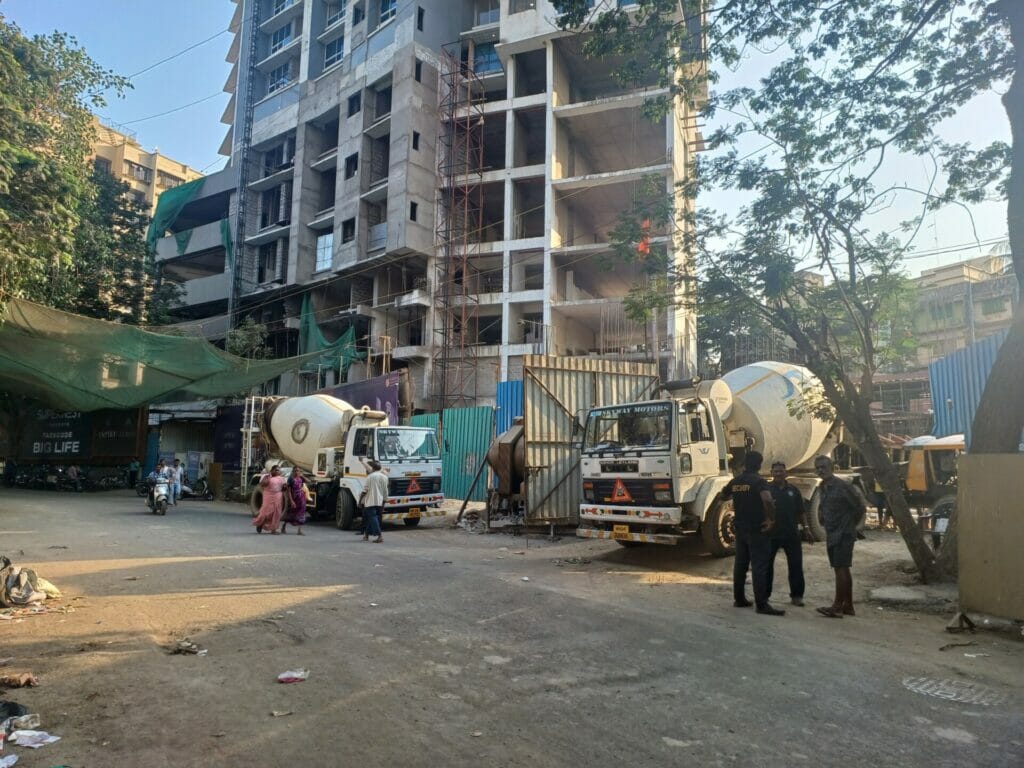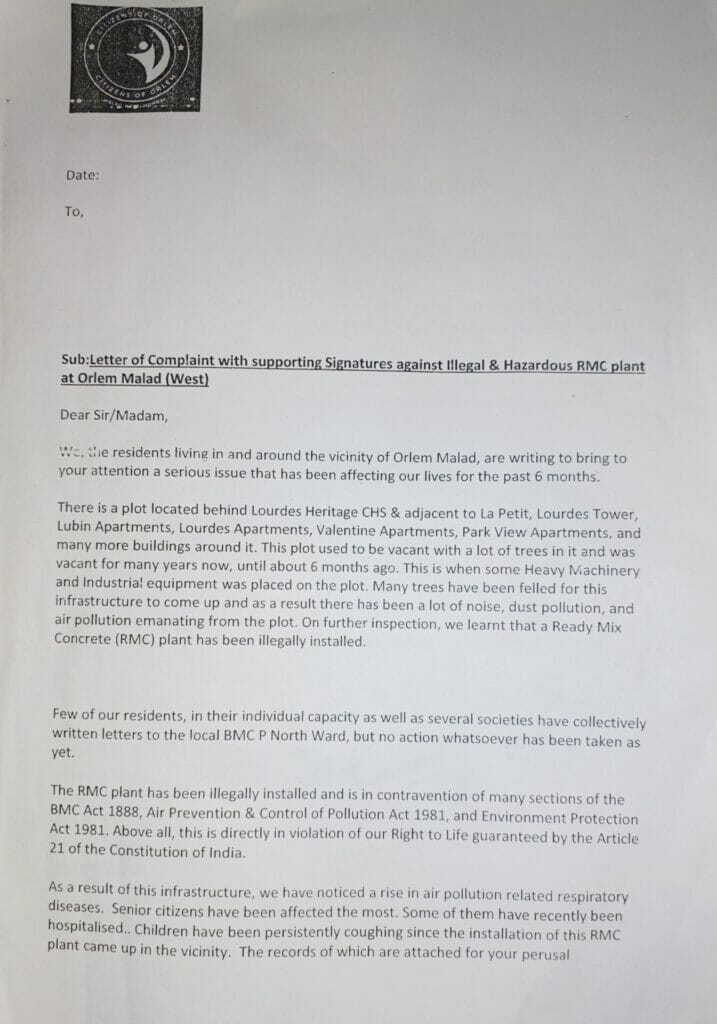Only two things come to mind when one mentions Orlem, the sprawling fish market and the splendid church. However, it is making news for another issue over the past few months. The citizens of Orlem have been putting up a brave struggle and resisting a polluter in the region.
Over the past six months, Orlem has witnessed massive air pollution emanating from a Ready-Mix Concrete plant (RMC) operating in the vicinity. The plant, located opposite Orlem Church in Malad West, is a severe health hazard, say residents.

Dealing with health risks and government apathy
The citizens allege that the plant has been causing air pollution with dust emanating from the construction site. They say it affects senior citizens and young children. In March, in a meeting with officials, most residents in societies of Orlem urged the authorities to take action. More than 32 cooperative housing societies have written to the assistant municipal commissioner about the problem so far.

“The citizens residing here for the past 40 years are not being heard and paid heed to. This is a serious concern for us, as we cannot keep our windows open for circulation, posing a serious health hazard,” said Rita D’souza of La Petite Society, Orlem. With work beginning in the wee hours of the day, there has been a rise in respiratory diseases amongst citizens of Malad West, some of whom had to be hospitalised.
A senior citizen residing in an Orlem society near the plant said, “The plant is not captive. A captive plant is set up solely to transport RMC to the project site. However, it has been operating in the open for the past six months. It is a nuisance, causing noise and air pollution.” Another resident added, “It has been over a month since we filed a Right to Information (RTI) application regarding the permits issued for the project. However, there has been no response from the concerned local authorities.”
Contravention of environmental laws
According to residents, the installation and operation of the plant contravenes the BMC Act 1888, the Air Prevention & Control of Pollution Act 1981, and the Environment Protection Act 1981. The citizens claim that the plot used to be filled with many trees; however, many were felled for the infrastructure project.
Read More: Aarey tree felling: A reluctant green signal allows MMRCL to axe more trees
According to the rules and regulations of the Maharashtra Pollution Control Board, no RMC plant should be set up within 200m of human habitation. However, the plant continues operating within 10m of residential societies, leading to black dust landing in the residents’ houses.
The residents allege that private entities have illegally occupied the plot. They are demanding for stricter measures from the P/North ward officials of the BMC, given that the plant continues to operate without any preventive measures.
Civic body’s “effective” measures
Kiran S Dighavkar, the assistant municipal commissioner of Malad West says the measures have effectively contained pollution. “The construction project had all their permits for beginning work at the site. However, we addressed the problems of citizens and held a direct meeting between residents and the RMC plant officials. We have covered the construction site with a green cloth, installed water sprinklers, and concreted the road around the plant. I believe these actions have effectively contained pollution since the citizens haven’t reached out to us in the recent past,” he said.
However, the citizens disagree with the commissioner’s views. One of the affected residents said, “Adding a green cloth does not stop the cement from coming into our houses. Despite addressing the problems to local authorities constantly, our efforts have not yielded results.”
The citizens also raised this issue with MLA Aslam Sheikh of Malad West constituency. However, they are still waiting to hear from him.
The struggle for an effective, long-term solution for containing pollution in Orlem continues amidst increasing health risks for the residents.
Dear without political leadership cannot setup RMC plant all mp mla councilor are involved in this project